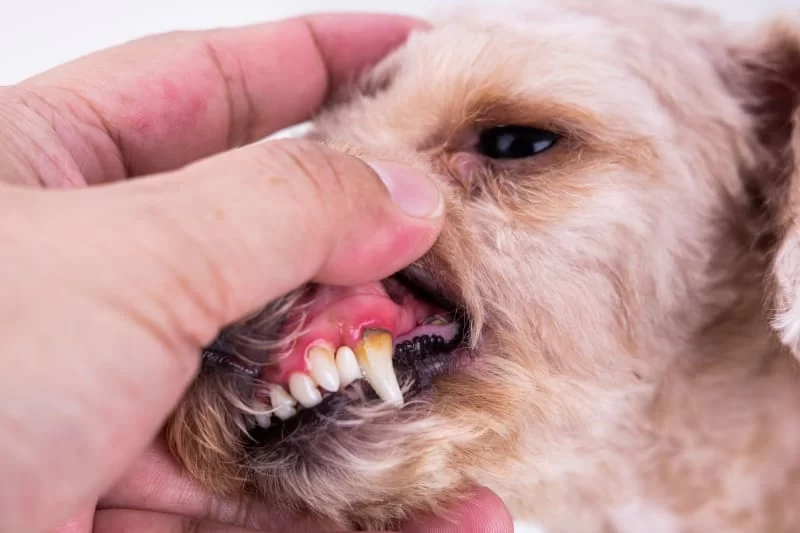- why-dental-health-matters-for-dogs
- early-warning-signs-of-dental-disease-in-dogs
- progression-and-serious-symptoms-to-watch-for
- case-stories-and-what-happens-without-proper-care
- prevention-professional-care-and-expert-tips
1. Why Dental Health Matters for Dogs
Dental disease in dogs isn’t just about bad breath—it can impact their entire quality of life. Healthy teeth and gums are crucial for everything from chewing food to playing fetch. Over time, untreated dental issues can lead to pain, infections, and even damage to organs like the heart and kidneys. That’s why recognizing the signs of dental disease in dogs early can make all the difference for your pet’s wellbeing.
Most dogs over the age of three show some symptoms of dental problems in dogs, but pet owners often miss the subtle early signs. Learning about canine dental health not only helps your dog avoid discomfort but can also prevent costly treatments down the road.
2. Early Warning Signs of Dental Disease in Dogs
One of the most overlooked signs of dental disease in dogs is persistent bad breath. While “doggy breath” is common, a strong or foul odor can indicate underlying gum disease or tooth decay. Pay attention if your dog starts avoiding chew toys or seems to favor one side when eating—these are often early indicators of discomfort.
Gum inflammation, also known as gingivitis, is another early warning. Gums may appear red, swollen, or bleed when touched. If you notice yellow or brown tartar buildup along the gumline, this could be an early symptom as well. In some cases, dogs with dental problems will paw at their mouths or drool more than usual.
Regularly lifting your dog’s lips and examining their teeth is a simple yet effective way to spot changes. If your dog resists this or seems unusually sensitive, it may be time to schedule a dental checkup with a professional like those at Hidden Brook Veterinary.
3. Progression and Serious Symptoms to Watch For
If early signs of dental disease in dogs go unnoticed, the condition can quickly progress. Advanced dog gum disease may cause loose or missing teeth, visible pus along the gums, or painful swellings in the face. You might also notice your dog dropping food, losing weight, or refusing to eat altogether.
Systemic symptoms can develop if bacteria from the mouth enter the bloodstream. Lethargy, persistent vomiting, or unexplained fevers are rare but serious signs that dental infection may be affecting organs beyond the mouth. At this stage, immediate veterinary attention is critical.
It’s important to remember that dogs are experts at hiding pain. By the time serious symptoms appear, dental disease may be advanced. This is why routine dental care for dogs—including professional cleanings and home brushing—is vital for prevention.
4. Case Stories and What Happens Without Proper Care
Real stories from pet owners highlight why recognizing signs of dental disease in dogs early is so important. Take “Maggie,” a beagle whose family noticed she was eating less and had a constant foul smell from her mouth. After a dental exam, it was discovered she had several infected teeth. Thanks to prompt treatment and ongoing dental care, Maggie quickly returned to her energetic self.
Unfortunately, not every story ends so well. Some viral cases online show what can happen when symptoms of dental problems in dogs are ignored—dogs develop severe abscesses or require risky surgery. These examples reinforce the value of paying attention to even minor changes in your pet’s behavior or appearance.
Many owners also share how regular visits to trusted clinics like Hidden Brook Veterinary have kept their pets’ smiles bright for years. Professional guidance makes it easier to catch problems early and choose the best products for dental care for dogs.
5. Prevention, Professional Care, and Expert Tips
Preventing dental disease in dogs starts with simple daily habits. Brushing your dog’s teeth, providing dental-friendly chews, and using approved water additives can make a big difference. But nothing replaces regular dental checkups by a veterinarian, who can spot hidden issues and recommend tailored solutions.
At Hidden Brook Veterinary, the team is dedicated to canine dental health—offering cleanings, advanced diagnostics, and advice on the best dental care products for dogs of all ages. If you have any concerns or need guidance, their professionals are ready to help you create a personalized care routine for your pet.
Remember, watching for signs of dental disease in dogs is an act of love that protects your best friend’s health and happiness for years to come.












